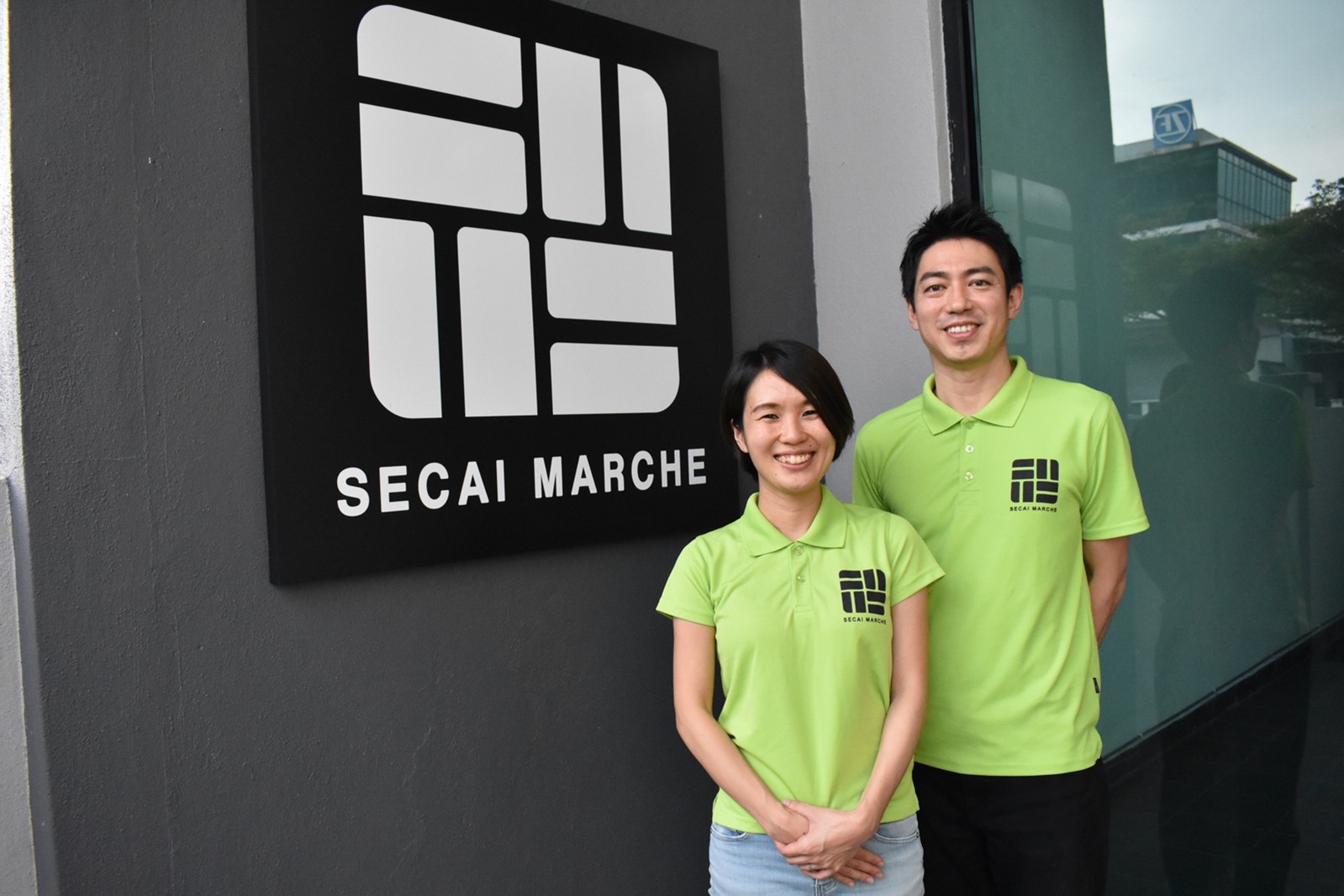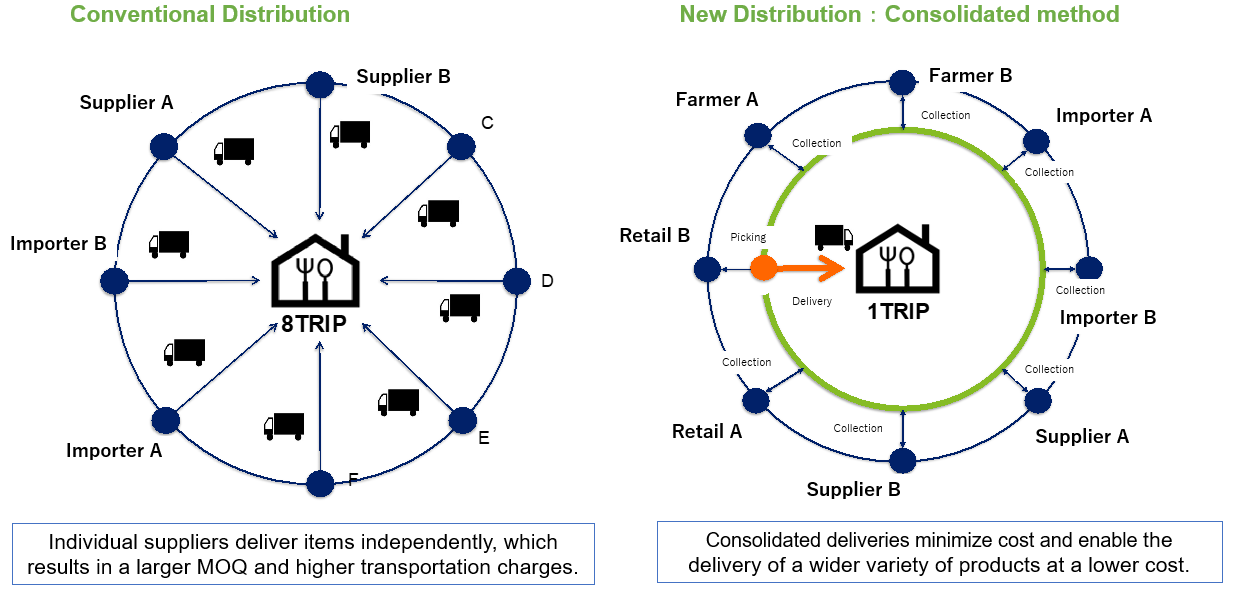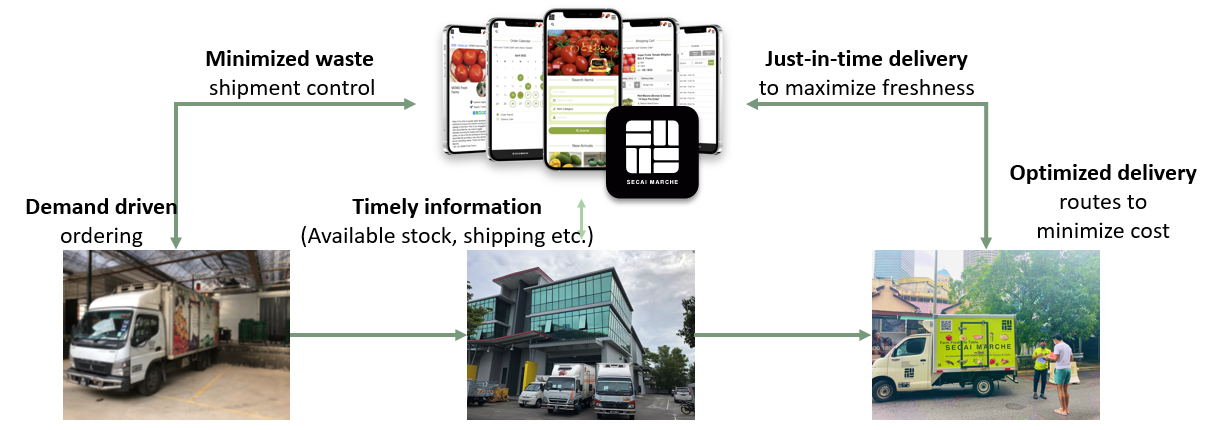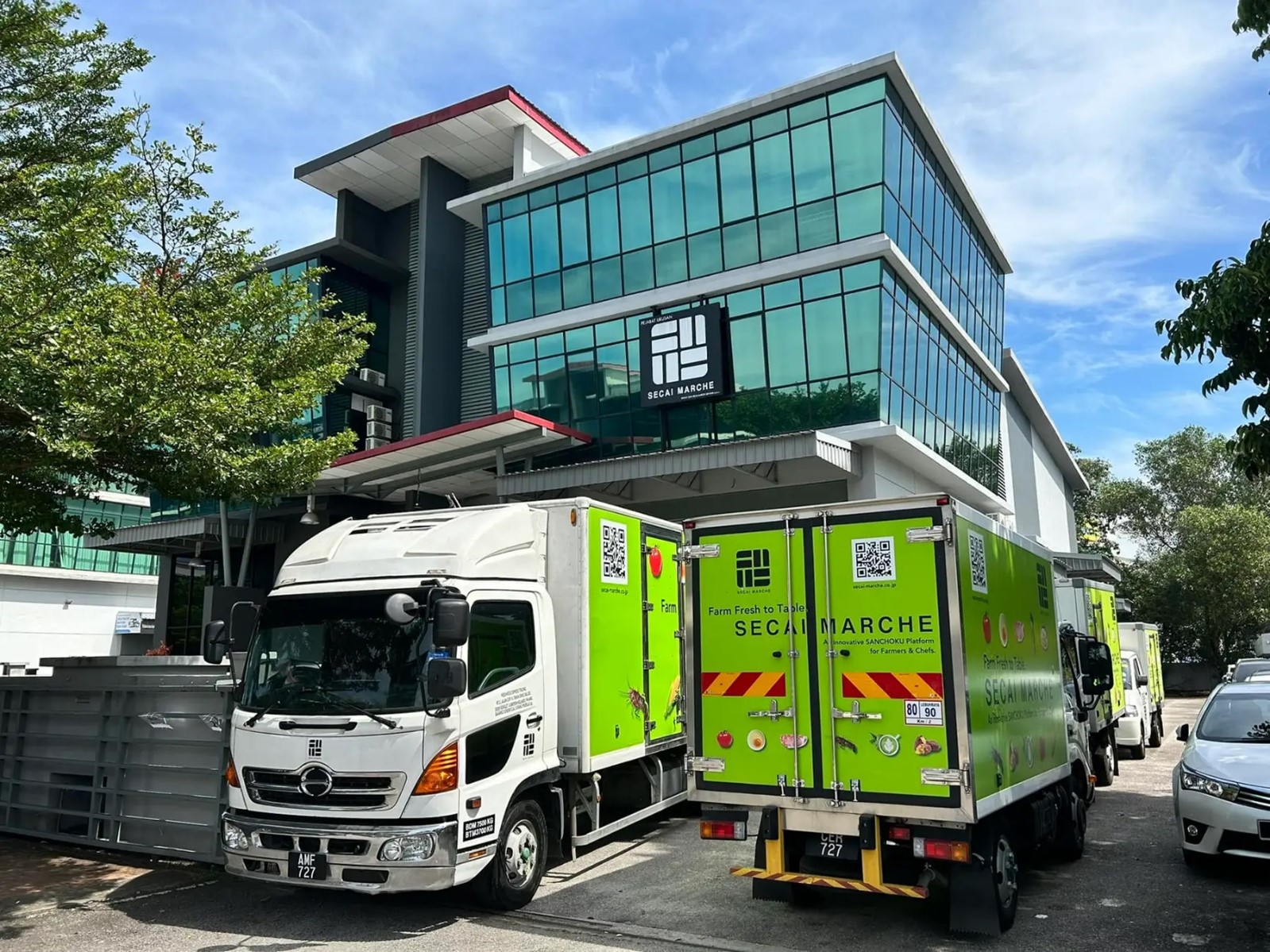- Home
- Policies
- METI Quick Reads
- Introducing an Asia DX Company that Uses Digital Technology to Solve Social Issues in Asia (4)
Introducing an Asia DX Company that Uses Digital Technology to Solve Social Issues in Asia (4)
"Secai Marche," a company providing an e-commerce service for the direct supply of perishable food in Malaysia with 1,000 or more companies introducing the serviceJanuary 22, 2024

The Ministry of Economy, Trade and Industry (METI) has been promoting the Asia Digital Transformation (DX) project to create new industries in which large Japanese companies or startups collaborate with other companies in Asia and solve social issues by taking advantage of digital technologies. METI will feature these “Asia DX companies” that are successful in advancing businesses overseas and introduce them in a series of articles.
Secai Marche, a company headquartered in Tokyo, Japan, deployed a business-to-business (B2B) e-commerce (EC) service for the direct supply of products in Malaysia in 2019, serving as a direct bridge between producers and consumers. Among its users, the number of restaurant and hotel companies on the consumer side reached 150 or more within one year from the establishment of Secai Marche, and the number of its current customers stands at over 1,000 companies. Moreover, the number of users on the producer side has also exceeded 350.
In Southeast Asia, the ratio of internet users who utilize EC is considered to be higher than the world average. We will introduce an EC business for the direct supply of products provided by Secai Marche, a company emerging in this huge EC market that is potentially crowded with competitors.
Delivering what customers need in the quantity they need: “Fulfillment service for small-lot, multi-kind products”
Malaysia has been facing a shortage of facilities for refrigerated transportation of perishable food, and this has slowed the dissemination of EC for perishable food in the country. To address this, Secai Marche offers a “fulfillment service for small-lot, multi-kind products.” In this service, temperature zones are optimally controlled for products, enabling the provision of the service to many Malaysian producers who have no refrigerated distribution system.
"Small-lot, multi-kind products service” refers to a process in which companies prepare a variety of products to meet the needs of consumers on a case-by-case basis and manufacture or ship the products in a small lot. Meanwhile, “fulfillment service” refers to a series of EC business processes ranging from order placement to delivery. Secai Marche has established a new system in which the company, working as a consolidating delivery network, connects with multiple producers, purchases different types of agricultural products from such producers in the necessary quantity that meets the needs of consumers, and then delivers the products to consumers.

Cost reduction, a source of added value exceeding price competitiveness
For Secai Marche, this service contributes not only to a reduction of duplication costs between the company’s delivery networks and the costs of intermediate distribution, but to a reduction of perishable food waste. In Malaysia, 99% of perishable food is transported at room temperature, resulting in a waste rate of about 50%. Meanwhile, Secai Marche accurately ascertains and controls the supply-demand balance between producers and consumers and keeps the optimal temperature zones for products across the supply chains, succeeding in curbing the waste rate to 1% or less.
The company's service provides producers with expanded sales channels and stable income through EC and offers consumers a convenient service that allows them to simultaneously purchase small-lot, quality products from a variety of farmers, and this has been becoming a source of added value for the company, exceeding mere price competitiveness.

Looking ahead to reverse-imports from Malaysia or Singapore to Japan
According to the company, it launched EC for the direct supply of products with the idea of time-machine management, adapting time-tested Japanese methods. After deploying the business, however, the company found that there were some promising ideas and businesses that had not yet become popular in Japan. In Southeast Asia, the region where the sharing economy for last-mile delivery was already developed, with the emergence of Grab, Lalamove, and other companies, Secai Marche is able to design and optimize from scratch the pickup and delivery services from the place of production to the place of consumption, thereby dramatically reducing delivery costs relative to the product prices compared to the costs incurred in EC services in Japan. Secai Marche is now considering reverse innovation in which the company will develop its business in Singapore, a country with many residents from Western countries, and Japan.

The Government of Japan supports companies in taking on the Asia DX project
METI has been supporting companies participating in the “Asia DX” project to create new industries in which large domestic companies or startups collaborate with other companies in Asia and solve social issues by taking advantage of digital technologies.
Secai Marche is an example of a company which has successfully adopted the “Program for Strengthening Overseas Supply Chains (Demonstration Projects and Project Feasibility Studies)” (Secretariat: JETRO) and the “Asia Digital Transformation Boost UP Program (ADX for Scale-UP Phase)” (Secretariat: JETRO). For details, visit the webpages on the Asia DX project and other projects on the METI website.
Policy Office for Co-creation of New Industries in Asia, METI
Projects mentioned in this article
Related article on METI Journal ONLINE
Secai Marche official website
Last updated:2024-01-22